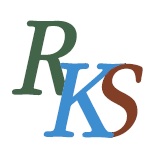The Recognition of Geomancy by Intellectuals during the Joseon Period
Abstract
Joseon was a society whose dominant principle of social management was Neo-Confucianism, therefore the perception of geomancy, which is the study of divination, was negative on the whole. The mysterious aspects immanent in geomancy itself provoked criticism by many Confucian scholars. However, in a Confucian society stressing the practice of ‘filial piety’, burying the corpse of one’s ancestor at a propitious site was an obligation of the descendant. Accordingly, there was room in which the theory of geomancy could be accepted. Geomancy of tomb was mainly accepted in relation to the selection of royal tombs. Song Si-yeol was a typical case. However, these cases were rare. Geomancy of house, employed in the selection of villages or dwelling sites, was more favorably received. Nevertheless, most Confucian scholars had a negative view of geomancy. While they took advantage of geomancy in selecting propitious burial sites for ancestors, they didn’t accept the theory of geomancy whole-heartedly. Since the former Joseon period, a criticism was raised about the theory of geomancy in relation to the construction of royal tombs. During the latter Joseon period when the vice of geomancy became a serious social problem, criticism of tomb-related geomancy was focused on the “feeling the same energy” theory or the theory of fortune and misfortune. Realist scholars such as Jeong Sang-gi, Yi Ik and Jeong Yak-yong led the criticism.
- keywords
- geomancy, geomancy of tomb, geomancy of house, energy of the land, the theory of fortune and misfortune, ‘feeling the same energy’ theory
참고문헌
Gwak Bak. Geumnamgyeong (Geomantic scripture in golden bag)
Ho Sun-sin. Jirisinbeop ( New Geography)
Jeong Sang-gi. Nongpo mundab (Questions and Answers of Nongja and Poja)
Jeong Yak-yong. Gyeongse yupyo (Designing for good government)
Jeong Yak-yong. Mongmin simseo (Admonitions on governing the people)
Jeong Yak-yong. Pungsu jibui (Collected works of pungsu)
Jeong Yi. Jangnon (Theory of burial)
Park Ji-won. Yeonamjip (Collected works of Yeonam)
Seo Seon-gye and Seo Seon-sul. Injasuji jahyo jirihak (Geomancy of filial piety essential to human beings)
Song Si-yeol. Songja daejeon (Collected works of Songja)
Yi Deok-hyeong. Jukchanghanhwa (Leisurely conversation beside the bamboo window)
Yi Geung-ik. Yeollyeosil gisul (Narratives of Yeollyeosil)
Yi Ik. Seongho saseol (Insignificant explanations of Seongho)
Yi Jung-hwan. Taekniji (Topography of selecting villages)
Yi Yu-won. Imha pilgi (Writings in Imha House)
Yi Gyu-gyeong. Oju yeonmun jangjeon sango (Random expatiations of Oju)
Yun Hyu. Baekho jeonseo (Collected works of Baekho)
Cheongogyeong (The Geomantic scripture of Cheongo)
Gukjo bogam (Precious mirror for succeeding reigns)
Gyeongguk daejeon (The Grand Code of managing the nation)
Joseon wangjo silok (Veritable Records of the Joseon dynasty)
Juja daejeon (Collected works of Chu Hsi)
Juyeok (Book of Changes)
Myeongsannon (Theory of noted mountains)
Choi, Chang-jo. 1984. Hangukuipungsusasang (Geomantic thought of Korea). Seoul: Mineumsa.
Choi, Chang-jo. 1990. Joeunttangiraneodireulmalhaminga (What do we call propitious lands?). Seoul: Seohaemunjip.
Ho, Sunsin. 2004. Jirisinbeop (New methods of geomancy). trans. Kim Dugyu, Seoul: Bibongchulpansa.
Jang, Jang-sik. 1995. Hanguguipungsuseolhwayeongu (A Study on pungsu folk tales in Korea). Seoul: Minsogwon.
Kim, Du-gyu. 1998. Urittanguripungsu (Our land, our geomancy). Seoul: Donghaksa.
March, Andrew L. 1986. “Understanding of Chinese geomancy.” Chinese Traditional Culture and Science. Kim Yeong-sik, ed. Seoul: Changjaksa.
- 다운로드 수
- 조회수
- 0KCI 피인용수
- 0WOS 피인용수


